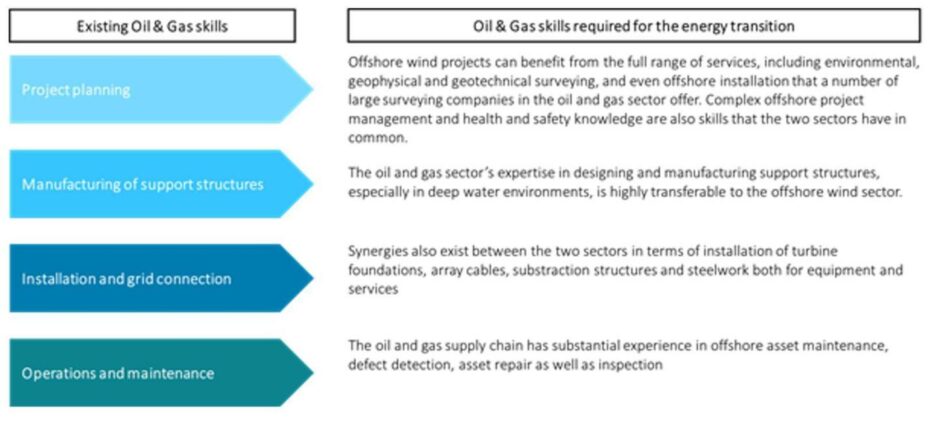
The government’s target for reaching net zero by 2050 is well known. It can feel like a daunting task, but this green revolution is also an exciting one, offering businesses the greatest opportunity for creating jobs and prosperity since the industrial revolution.
This is especially true of the oil and gas industry, which lies at the heart of the energy transition. The UK is rapidly moving towards a more integrated energy system, highlighting the need to build an all-energy workforce capable of delivering a sustainable, net-zero future. And faced with the reality that the climate crisis is intensifying, it’s clear the sector needs to make people central to their strategies.
The latest Reuters Events and Deloitte Energy Transition trends survey shows that an organisation’s ability to deliver on net-zero pledges is a key factor in attracting the best talent. In fact, 64% of people surveyed said that energy transition commitments would be ‘a major factor’ when choosing which company to work for. So, outlining a clear pathway to net zero is something that should be top of the agenda in every boardroom.
But it’s the people already working in this industry that will be equally important in making the energy transition a success. Oil and gas companies are reinventing business models and operations in a rapidly changing energy landscape, as we transition from hydrocarbons to renewables.
So, the focus for many companies will be to equip their existing workforce with the skills needed to help plot a net-zero pathway. And this must not be underestimated, because underinvestment in skills now could have a long-term impact on the speed and scale of the sector’s decarbonisation efforts. Talent retention will be crucial, but oil and gas companies will also need to consolidate existing skills, reskill & upskill their workforce while attracting new talent to run the new, renewable parts of their businesses and to optimise new value chains.
Digital transformation also brings challenges, with technological innovation and new ways of working reshaping the industry. Digital skills such as data science, data analytics, machine learning, robotics, material science, remote operations and cyber-security will increase. And with approximately 4,500 people in roles by 2025 that did not exist in 2019, the sector quickly needs to learn how to navigate a new and very different recruitment landscape.
Creating a multi-skilled workforce will be key. Despite the challenges this brings, many of the specialist skills necessary to support net-zero obligations already exist in the supply chain. These include the technical expertise needed in asset electrification, energy efficiency and management, and fugitive emissions reduction. Offshore wind, hydrogen, carbon capture, utilisation and storage (CCUS) are markets keen for some of the skills, capabilities and technologies that oil and gas companies have built up over the years in the North Sea.
The figure below shows how existing oil and gas skills could be transferred to the offshore wind sector.
The role that the current oil and gas industry workforce plays in the industry’s decarbonisation efforts has already been stressed. Transitioning technical skills from high-carbon to low-carbon operations are of crucial importance, but that’s not where it ends. As businesses transition to net zero, green skills – the knowledge, behaviours, technical skills and capabilities required to tackle the environmental challenges we face – across the entire organisation are increasingly sought after. And as green skills promise to be such a key enabler to unlocking competitive advantage amid our wider climate ambitions, we will be dedicating an entire article to this topic in the coming weeks.
Before then, the Net Zero Workforce event will be hosted by Energy Voice, on 29 March in Aberdeen (and online), where Deloitte will be discussing this important topic. We’ll be hearing from organisations supporting people from the industry as their roles evolve, so we can all better understand these reskilling opportunities.
We hope to see you there, either in person or virtually. Contact Sonia Storr sstorr@deloitte.co.uk.
Recommended for you

 © Supplied by Reuters / Deloitte
© Supplied by Reuters / Deloitte